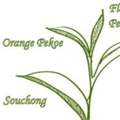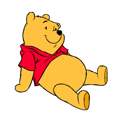Wann ist eigentlich Teatime in Großbritannien?
Das ist bestimmt nicht genau definiert, aber es ist auf jeden Fall nachmittags.
Das Ergebnis basiert auf 4 Abstimmungen
3 Antworten

IMMER!
Sonst im Einzelnen u.a.:
- Early Morning Tea (nach dem Aufwachen, vor dem Frühstück)
- Breakfast (Frühstück)
- Second Breakfast (Frühstückspause)
- Elevenses (11 Uhr Tee, gibt es auch in Ostfriesland)
- After Lunch Tea (12-14 Uhr)
- Afternoon Tea (15:30-17 Uhr)
- High Tea (17-19 Uhr)
- Late Evening Tea (19-... Uhr)

Eigentlich zwischen 15:00 und 17:00
Der typische Afternoon Tea findet zwischen drei und fünf Uhr am Nachmittag statt, deshalb wird er auch Five-o-Clock-Tea genannt. Die Tradition des Afternoon Tea geht ebenfalls auf eine Frau zurück: Lady Bedford, Hofdame von Königin Victoria, gilt als seine Erfinderin.
Lady Bedford fühlte sich am späteren Nachmittag häufig etwas unwohl. Zu ihrer Zeit pflegte man mittags nur ein leichtes Mahl einzunehmen, das Abendessen wurde aber erst nach sieben Uhr abends serviert. Zur Stärkung ließ sich Lady Bedford daher nachmittags eine Tasse Tee und einen kleinen Imbiss bringen

Hallo,
tea kann (auch) ein kleines Abendessen, eine kleine abendliche Brotzeit sein.
Zur Erklärung schau mal unter folgendem Link nach:
www.bbc.co.uk/worldservice/learningenglish/radio/specials/1535_questionanswer/page2.shtml
Hier der relevante Absatz:
And the final word is tea. Now of course this is a drink, like tea and coffee, but it can also be a light evening meal. I think this word is often used in families, particularly with their children. "It's tea time", "It's time for tea!" This means their small evening meal.
Ob es tea, dinner oder supper heißt, ist auch abhängig von der sozialen Stellung.
Hier ein weiterer interessanter Link dazu: putlearningfirst.com/language/12dial/dinner.html.
Ganz toll und witzig (auf Deutsch) erklärt, wird das auch im Kapitel Five o'clock tea oder Was hat der Tee mit dem Abendessen zu tun? des Buches What's for tea?
Englisch, wie es nicht im Schulbuch steht von Claudia Holt (Heyne)
Und folgendes hat George Mikes in How to be an Alien über TEA geschrieben:
… the trouble with tea is that originally it was quite a good drink. So a group of the most eminent British scientists put their heads together, and made complicated biological experiments to find a way of spoiling it. To the eternal glory of British science their labour bore fruit. They suggested that if you do not drink it clear, or with lemon or rum and sugar, but pour a few drops of cold milk into it, and no sugar at all, the desired object is achieved. Once this refreshing, aromatic, oriental beverage was successfully transformed into colourless and tasteless gargling-water, it suddenly became the national drink of Great Britain and Ireland - still retaining, indeed usurping, the high-sounding title of tea. There are some occasions when you must not refuse a cup of tea, otherwise you are judged an exotic and barbarous bird without any hope of ever being able to take your place in civilised society. If you are invited to an English home, at five o'clock in the morning you get a cup of tea. It is either brought in by a heartily smiling hostess or an almost malevolently silent maid. When you are disturbed in your sweetest morning sleep you must not say: 'Madame (or Mabel), I think you are a cruel, spiteful and malignant person who deserves to be shot.' On the contrary, you have to declare with your best five o'clock smile: 'Thank you so much. I do adore a cup of early morning tea, especially early in the morning.' If they leave you alone with the liquid, you may pour it down the washbasin.
Then you have tea for breakfast; then you have tea at eleven o'clock in the morning; then after lunch; then you have tea for tea; then after supper; and again at eleven o'clock at night. You must not refuse any additional cups of tea under the following circumstances: if it is hot; if it is cold; if you are tired; if anybody thinks that you might be tired; if you are nervous; if you are gay; before you go out; if you are out; if you have just returned home; if you feel like it; if you do not feel like it; if you have had no tea for some time; if you have just had a cup. You definitely must not follow my example. I sleep at five o'clock in the morning; I have coffee for breakfast; I drink innumerable cups of black coffee during the day; I have the most unorthodox and exotic teas even at tea-time. The other day, for instance - I just mention this as a terrifying example to show you how low some people can sink -1 wanted a cup of coffee and a piece of cheese for tea. It was one of those exceptionally hot days and my wife (once a good Englishwoman, now completely and hopelessly led astray by my wicked foreign influence) made some cold coffee and put it in the refrigerator, where it froze and became one solid block. On the other hand, she left the cheese on the kitchen table, where it melted. So I had a piece of coffee and a glass of cheese"
:-) AstridDerPu